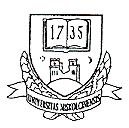The English Language Examination in the Hungarian School-Leaving Examination – A Comparison to Practices in Other European Countries
The English Language Examination in the Hungarian School-Leaving Examination – A Comparison to Practices in Other European Countries
Author(s): Mária Csernoh, Ildikó Korponayné NagySubject(s): Education
Published by: Miskolci Egyetem
Summary/Abstract: In 2005 a new school-leaving examination was introduced which caused a major change both in secondary and tertiary education in Hungary. Like in other European countries, the school-leaving examination has two functions: it is the closing act of the secondary studies and at the same time it is the entrance examination to higher education. In the present study we compared the Hungarian, German, Portuguese, and French school-leaving examination tests in English as a foreign language. Attention was focused on the structure, text and task types, as well as on the vocabulary of the tests. We found that the Hungarian exam differs in a number of aspects from the tests in other European countries. On the whole the Hungarian written paper resembles a monolingual proficiency exam test. The German, Portuguese, and French exam papers are classical school-leaving tests in the sense that besides measuring language proficiency they refer back to students’ secondary school studies in English culture and civilization.
Journal: European Integration Studies
- Issue Year: IV/2005
- Issue No: 2
- Page Range: 13-21
- Page Count: 11
- Language: English

